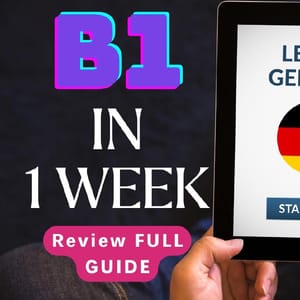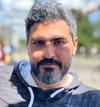Red Lights, Green Lights, and Qadar
At some point I realized this is more than driving. It’s Qadar and Tawakkul in real life: you take the lawful means, you keep your lane, and you trust the outcome to The God. The shortcut mindset looks fast, feels loud, and arrives literally at the same red light.

Every week day in the morning I drop my son at kindergarten, and then drive back to either home or work. I always follow traffic rules and for me fifty means fifty, thirty means thirty. Meanwhile, many people treats the city roads like a video game. Tailgaters. Flashers. The “70-in-a-50 and I’m-the-most-important-person” type. They rocket past me and other good drivers with rage and anger, then we all meet again at the next Red light. We look at each other. Same light. Same street. Different pulse.
At some point I realized this is more than driving. It’s Qadar and Tawakkul in real life: you take the lawful means, you keep your lane, and you trust the outcome to The God. The shortcut mindset looks fast, feels loud, and arrives literally at the same red light.
Qadar: Divine decree everything unfolds within The God’s knowledge and will. We still choose and are responsible, but outcomes remain with The God.
Tawakkul: Active trust in God, take the lawful means (plan, work…), then rely on The God for the result; it’s not passivity.
The daily experiment (I didn’t plan it, Munich planned it)
The beginning: I’m at 50. Someone is almost hitting my rear bumper with their grill. I don’t “take the bait.” I keep my speed, I keep right when safe, then I let them blast by.
Then 400 meters later, we meet at Red 😀 They stare, and I smile 😀
And finally a few lights down, same story. We meet again.
After many of these daily small experiments, the result is somehow consistent: city traffic normalizes extreme behavior. You can gamble with amber, sprint between lights, and still net almost nothing on ETA. You just pay more in stress, risk, and fuel.
My faith, my principle
Islam’s balance is simple and hard: take the means and trust in The God. The Prophet ﷺ put it in one line: “Tie it and rely [on The God].” It’s not “tie or rely.” It’s both. Quran repeats this frame: “Nothing will befall us except what Allah has destined for us… and upon Allah let the believers rely” (9:51). Provision is from The god(11:6). Whoever relies on The God - The God is sufficient (65:3). That’s not theory; that’s a driving plan, a career plan, a life plan. (Sunnah.com)
There’s also a legal-ethical guardrail we tend to forget: no harm and no reciprocating harm. Traffic rules are basically that hadith turned into signage. When someone weaponizes their car to make us break the laws, the Sunnah response is not to mirror the harm. It’s to de-escalate and keep others safe. (Sunnah.com)
Myth “But speeding saves time, right?”
On highways, I think so, and it is legal and expected by other drivers. In the city, it’s usually the hurry-up-and-wait effect: red lights, crossings, and bunching erase most of the speeding gains. The time “saved” is in seconds while risk is multiplies. That’s not just my gut; traffic studies show urban speeding yields marginal time savings and higher crash likelihood. In other words: you win a few seconds and lose your serenity (or even worse worse). (Quran.com)
What the road taught me about work and life
- Means matter. In Islam you don’t chase outcomes by any road; you choose the legal&halal road and trust the destination.
- Pace beats panic. The guy weaving like a sewing machine feels productive. The clock disagrees.
- Anger is sticky. If I let someone else’s stress set my speed, I’ve already lost time, focus, and adab.
- Barakah > brute force. The halal lane can be quiet, but it compounds. Think months and years, not five minutes.
Scenes you can picture
- He floors it to pass three cars, then panic-brakes for a stroller crossing. I can roll up, wave to the kid, roll on.
- Green wave appears because I wasn’t sprinting then slamming. My ETA holds; my heart rate does too.
- He side-eyes me at the second red. I sip. He fumes. We “arrive together,” just not the same way.
The playbook (driving)
- When tailgated: Hold your legal speed. Keep right when safe, let them go, don’t educate with your brake pedal. That’s “no harm” in action. (Sunnah.com)
- Yellow is not prize. Treat it as what it is actually is “prepare to stop,” not “pass it before it becomes red 😀.” Your schedule won’t collapse but your nervous system will thank you.
- Set your attention, not just your speed. Smooth inputs, longer following distance, eyes far ahead. It’s amazing how many reds turn green when you stop sprinting into them.
- Make patience visible. A simple wave when someone merges, a full stop for pedestrians. It actually changes the vibe of your whole day.
The playbook (life)
- Pick Legal & Halal means even when they’re slower. You want the door that Allah opens, not the hole you punched in the wall. “And whoever relies upon Allah—He is sufficient for him.” (Quran.com)
- Don’t outsource your pace to other people’s urgency. A colleague’s panic is not your SLA.
- Work clean, then release. Plan, do the reps, then actively hand the result to Allah. If He withholds today, it’s timing, not punishment. Provision is written. (Quran.com)
- Protect while you chase the goal. If achieving it requires you to become someone you don’t respect, that is not success. That is a fine but with a different name.
Objection corner (the honest bit)
Sometimes they do arrive sooner. True. Clear roads, long gaps between lights, highway stretches. But my point is not to never pass. My point is to not let shortcuts define your strategy. The average city trip will never reward the risk. The average career won’t reward the haram hack. The variance is noise; your character is the signal.
The line I tell myself at the light
Tie your seatbelt. Then let Allah drive the outcomes. It is not passive. It is disciplined. I still want to reach the goal. I still push. I still learn and iterate. I just won’t break the rules.
We do arrive together, eventually. One of us arrives with a quiet heart.
Notes & sources
- Qur’an 9:51 — “Nothing will befall us except what Allah has destined for us… and upon Allah let the believers rely.” (Quran.com)
- Qur’an 65:2–3 — “…and whoever puts their trust in Allah, He is sufficient for them.” (Quran.com)
- Qur’an 11:6 — “There is no creature on earth but its provision is upon Allah.” (Quran.com)
- Hadith (Tirmidhi 2517) — “Tie it and trust [in Allah].” (Sunnah.com)
- Hadith (No harm / no reciprocating harm) — Nawawi #32; narrated in Ibn Mājah and others. (Sunnah.com)
![telc Deutsch B1 [Part - 1]](/content/images/size/w300/2026/02/telc_b1_prep_part1.jpg)




Join the discussion
Comments